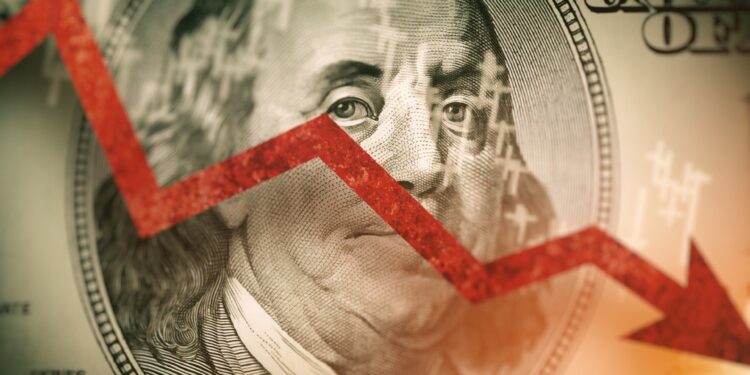The Guardian newspaper said that fears of the impact of debt-related securities have escalated significantly recently with the increasing use of these complex financial instruments by distressed companies supported by private equity funds, which brings to mind the subprime mortgage crisis that struck the United States and the world in 2008.
The British newspaper reported in a report by writer Kalina Makurtov that the movie “The Big Deficit,” presented by star Margot Robbie in 2015, and adapted from a book of the same name by Michael Lewis, explained in detail this phenomenon, whereby banks collect high-risk mortgages with a rating The reduced amount is converted into investable bonds, then divided and sold for profits.
Shadow banking sector
The author emphasized that the spread of these bonds backed by mortgage loans at the beginning of the 21st century led to disastrous results in the global financial system when borrowers began to default on mortgage debts.
The 2008 crisis led to tighter regulatory oversight, as new legislation was introduced to ensure that a massive financial collapse caused by loan-backed bonds, which billionaire Guy Hands previously described as “the cocaine of the financial services industry,” would not be repeated.
But after 16 years, a number of experts believe that new risks have begun to surface, and they are linked to companies laden with debt backed by private equity funds, and known in the financial sector as the “world of shadow banking,” a term that refers to financial companies that are subject to weak supervision or Non-existent compared to traditional lenders, including hedge funds, private credit funds, and private equity funds.
The writer added that the use of securitization as an investment tool declined in the wake of the 2008 crisis due to damage to its reputation and tightening regulatory oversight, but its popularity subsequently rose, and the value of the global securitization market now amounts to about 4.7 trillion pounds (5.9 trillion) of assets, according to analyst estimates in “ RBC Capital.
She explained that part of this sector is subject to strict supervision, as loans collected by credit rating agencies are classified and sold to a wide group of investors, with their conditions, structure and sales disclosed publicly, which is the method usually followed by traditional banks.
As for “Shadow banking sectorPrivate securities are sold directly to a limited group of specialized investors, a less regulated process that does not require review by credit rating agencies.
Expert warnings
Benjamin Toms, an analyst at RBC Capital, says that this phenomenon represents “a risk that does not receive sufficient attention, given the lack of oversight in this area and the complexities of using the tools that are kept there,” according to the newspaper.
According to the British newspaper, Natasha Postel-Vinai, an assistant professor at the London School of Economics and an expert in financial regulation, believes that the stock market needs a careful review, and this includes the risks related to bonds associated with loans, including loans directed to companies with low credit ratings or distressed companies that have been debited. Acquired by private equity funds using large loans, known as leveraged buyouts.
The term leverage refers to a strategy that allows borrowing money from brokers to invest in the markets with a larger capital, and reliance on it has increased significantly in recent times.
“Private equity firms invest in companies that are about to go bankrupt, and in order for these companies to survive, they invest in debt. These loans end up being repackaged as well, similar to junk mortgages before the 2008 crisis,” Vinay added.
The Bank of England warned last December that British banks were partly protected from losses on public debt securities by holding the highest quality tranches of securities, but the British financial system remained indirectly vulnerable through its connections to foreign banks and insurers that… It increasingly deals with loans to highly indebted companies.
Vinay said it was important to define responsibilities before things get worse. “We want to make sure that the mistakes that occurred in the first decade of the 21st century are not repeated, and that we clearly identify the party responsible for the credit risks behind these loans,” she said.
She concluded by saying, “There are underlying loans that must be repaid, and they must be examined and monitored… In these cases, I must say that there is a lack of transparency. I think that many people do not know exactly what is happening.”



